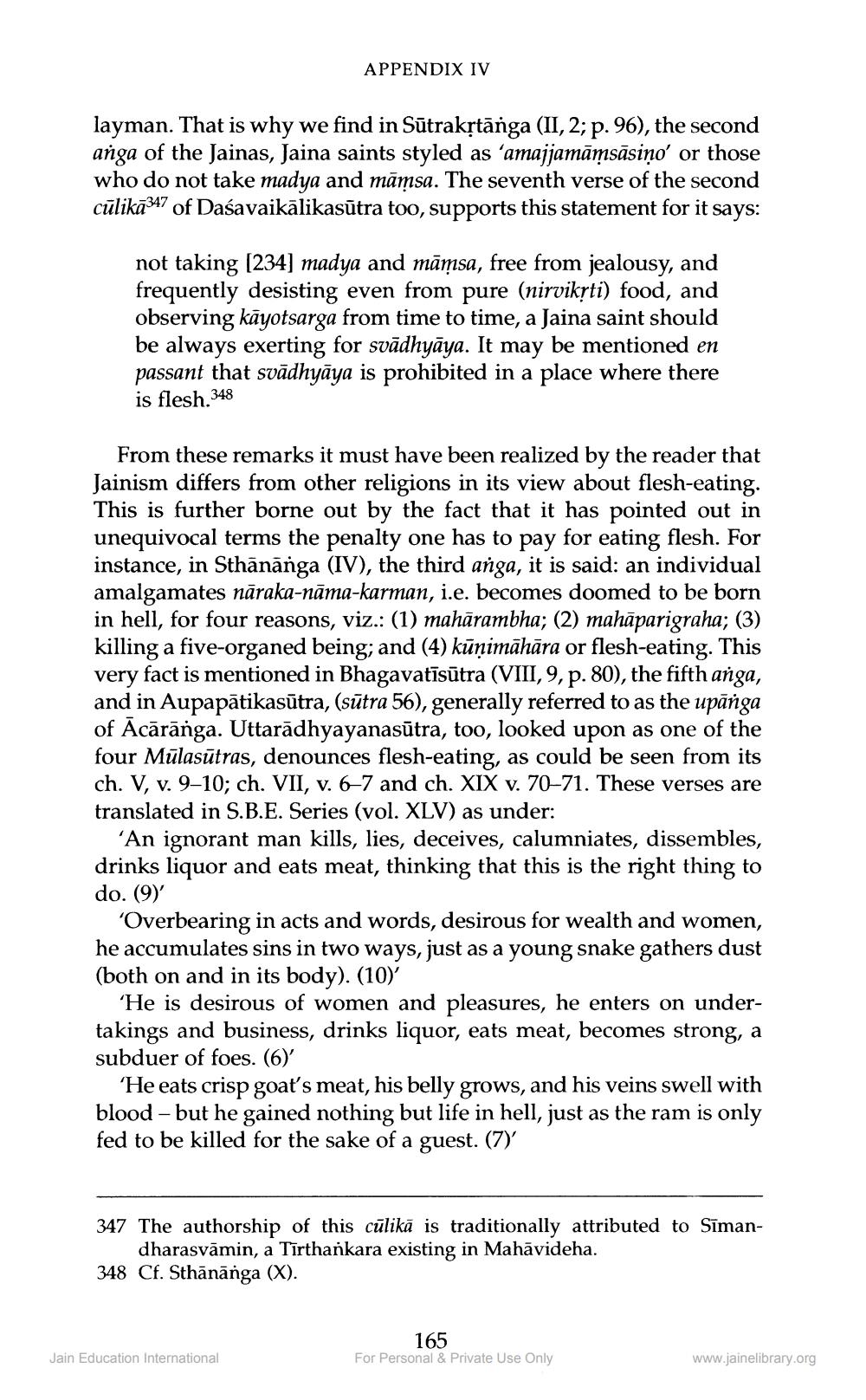________________
APPENDIX IV
layman. That is why we find in Sūtrakstānga (II, 2; p. 96), the second anga of the Jainas, Jaina saints styled as 'amajjamāmsāsiņo' or those who do not take madya and māmsa. The seventh verse of the second cūlikā347 of Daśavaikālikasūtra too, supports this statement for it says:
not taking [234] madya and māmsa, free from jealousy, and frequently desisting even from pure (nirvikyti) food, and observing kāyotsarga from time to time, a Jaina saint should be always exerting for svādhyāya. It may be mentioned en passant that svādhyāya is prohibited in a place where there is flesh. 348
From these remarks it must have been realized by the reader that Jainism differs from other religions in its view about flesh-eating. This is further borne out by the fact that it has pointed out in unequivocal terms the penalty one has to pay for eating flesh. For instance, in Sthānānga (IV), the third anga, it is said: an individual amalgamates nāraka-nāma-karman, i.e. becomes doomed to be born in hell, for four reasons, viz.: (1) mahārambha; (2) mahāparigraha; (3) killing a five-organed being; and (4) kūņimāhāra or flesh-eating. This very fact is mentioned in Bhagavatīsūtra (VIII, 9, p. 80), the fifth anga, and in Aupapātikasūtra, (sūtra 56), generally referred to as the upanga of Acārānga. Uttarādhyayanasūtra, too, looked upon as one of the four Mülasūtras, denounces flesh-eating, as could be seen from its ch. V, v. 9-10; ch. VII, v. 6-7 and ch. XIX v. 70–71. These verses are translated in S.B.E. Series (vol. XLV) as under:
'An ignorant man kills, lies, deceives, calumniates, dissembles, drinks liquor and eats meat, thinking that this is the right thing to do. (9)
'Overbearing in acts and words, desirous for wealth and women, he accumulates sins in two ways, just as a young snake gathers dust (both on and in its body). (10)
He is desirous of women and pleasures, he enters on undertakings and business, drinks liquor, eats meat, becomes strong, a subduer of foes. (6)'
'He eats crisp goat's meat, his belly grows, and his veins swell with blood - but he gained nothing but life in hell, just as the ram is only fed to be killed for the sake of a guest. (7)
347 The authorship of this cūlikā is traditionally attributed to Sīman
dharasvāmin, a Tīrthankara existing in Mahāvideha. 348 Cf. Sthānānga (X).
165 For Personal & Private Use Only
Jain Education International
www.jainelibrary.org




